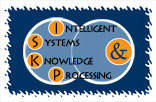- G. Meditskos, N. Bassiliades, "A Rule-based Object-Oriented OWL Reasoner ", IEEE Transactions on Knowledge and Data Engineering (TKDE), 08 Oct 2007. IEEE Computer Society Digital Library. IEEE Computer Society, 9 October 2007.
- G. Meditskos, N. Bassiliades, "O-DEVICE: An Object-Oriented Knowledge Base System for OWL Ontologies", Proc. 4th Hellenic Conference on Artificial Intelligence, G. Antoniou, G. Potamias, D. Plexousakis, C. Spyropoulos (Ed.), Springer-Verlag, Heraclion, Crete, 2006.
- G. Meditskos, N. Bassiliades, “Towards an Object-Oriented Reasoning System for OWL”, Workshop on OWL Experiences and Directions, 11-12 November, Galway, Ireland, 2005
|
O-DEVICE is a memory based reasoning system for OWL ontologies using production rules. In our approach we apply a transformation procedure over ontologies in order to transform them into an object-oriented schema of classes and objects. Then, we apply over this schema production rules in order to derive the formal semantics of the language. These rules are the implementation of a number of RDF/OWL entailment rules as they have been described in here. With O-DEVICE, we want to investigate if and how we can benefit from the use of object-oriented programming techniques in the domain of knowledge represenation with ontologies.
The supported constructs are: rdfs:subpropertyOf, owl:SymmetricProperty, owl:TransitiveProperty, owl:inverseOf, owl:equivalentProperty, owl:someValuesFrom, owl:allValuesFrom, owl:cardinality, owl:minCardinality, owl:hasValue, owl:FunctionalProperty, owl:InverseFunctional Property, owl:sameAs, owl:intersectionOf, owl:unionOf, owl:equivalentClass, owl:dis jointWith, owl:differentFrom, owl:AllDifferent.
| Abstract Rule Syntax of O-DEVICE Inference Rules |
Intuitively, rules can be classified into two categories. The rules of the first category read ontology information in the form of triples and materialize the information in the form of classes, properties and objects. At the same time, they apply semantic transformations whenever is necessary based on the already existing information in the knowledge base by combining triples and objects in order to retain the consistency. The second category contains rules that perform more sophisticated semantic derivations and are applied only in the objects of the knowledge base. These rules are the result of our dynamic approach of generating inference rules. Consequently, the complete representation of the rules requires the definition of a syntax able to represent and combine both triples and objects of the knowledge base. See more
| The Rule Language of O-DEVICE |
The deductive rule language of O-DEVICE supports inferencing over OWL instances represented as objects and
defines materialized views over them, possibly incrementally maintained. The conclusions of deductive rules
represent derived classes, i.e. classes whose objects are generated by evaluating these rules over the current
set of objects. Furthermore, the language supports recursion, stratified negation, path expressions over the
objects, generalized path expressions (i.e. path expressions with an unknown number of intermediate steps),
derived and aggregate attributes. Each deductive rule in O-DEVICE is implemented as a CLIPS production
rule that inserts a derived object when the condition of the deductive rule is satisfied. See more
Here you can find the 14 extensional queries of LUBM using the query language of O-DEVICE.
|
|

